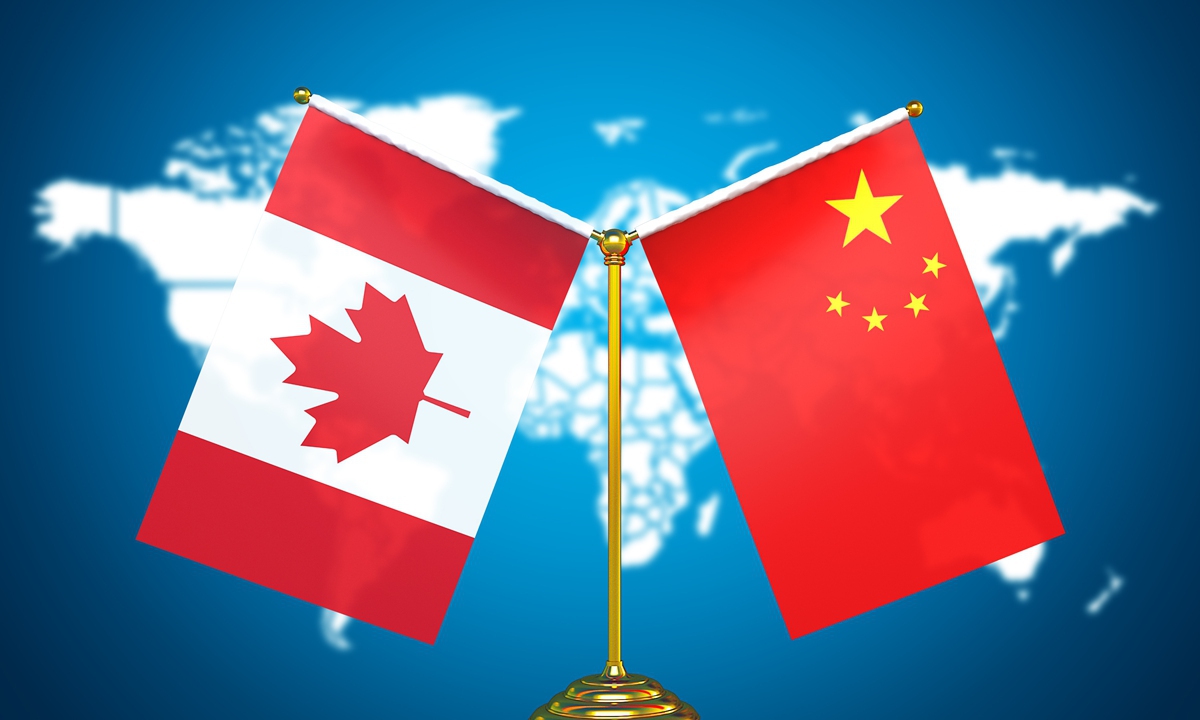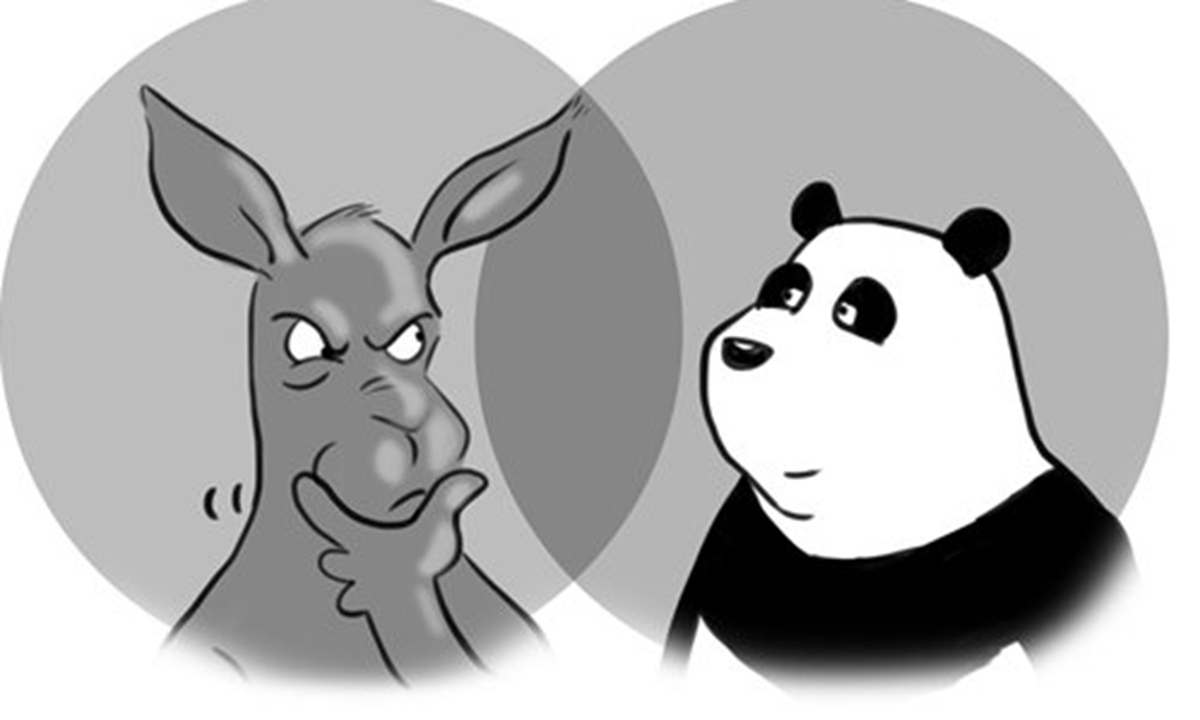
China and Canada Photo: VCG
Both Canada and Australia have released the signals of "hoping to mend their relationship with China", which is a notable trend. The two members of the "Five Eyes," who inexplicably acted as Washington's "geopolitical pawns" around 2018, leaving their relations with China in a difficult plight. This abnormal situation has been going on for three or four years, and it is indeed time to adjust.
The industrial and business sectors of Canada and Australia are particularly eager, and even a little in haste. They represent the most pragmatic and rational groups in the two countries' exchanges with China. Economic and trade cooperation is the most active and dynamic driving force in China-Canada and China-Australia relations.
However, in the past few years, the voices of the industrial and business sectors of the two countries have been pushed aside by political, security and ideological arguments, and their vital interests and economic and trade cooperation have been affected and damaged by the deterioration in political relations with China.
This is not just the loss for the group of the business community, but a collective one for Canada and Australia. In other words, ordinary people in both countries have paid the price to varying degrees for their politicians' paranoid and wrong decisions toward China. From this perspective, improving and repairing relations with China is a compensation for the interests of the people of the two countries.
Both Canada and Australia have expressed their willingness, through different ways, to "reset" their relations with China, which is a welcome step. We have also seen a certain return of rationality toward China. However, sometimes there is a long way to go from will to reality. There is a saying in China that it takes more than one cold day for the river to freeze three feet deep, and it's impossible to defrost in a short period of time. The elites in Canada and Australia also mentioned this point in their public discussions on China policy, pointing out that the beginning may be easy, but there will be difficulties ahead.

China Australia Illustration: Liu Rui/GT
China has never offended Canada and Australia, but they blindly followed Washington to provoke China again and again, and then constantly found they shot themselves in the foot. For Canada and Australia, easing China ties depends on whether they can jump out of the framework set by the US. This key factor that led to the deterioration in their relations with China has not vanished, but may be strengthened. It will inevitably interfere and hinder Canada and Australia's tentative efforts to ease relations with China. In addition, during the period of their worsened relations with China, the cognition toward China in Canadian and Australian societies has been distorted and poisoned to a large extent, and it will take a long time to correct this.
"Difficulty" is conceivable, but it can be easy as long as decision-makers in Canada and Australia bypass the psychological barrier they have set for themselves. There are three points: First, take a positive and objective view of China and pursue a steady and pragmatic China policy; second, respect each other's core interests and do not set new obstacles to bilateral relations; and third, adhere to autonomy and get rid of unnecessary external interference. It should be emphasized that these three points do not mean that Australia and Canada need to compromise on their so-called values. Harmony in diversity is one of the foundations of China's diplomatic philosophy.
Canada and Australia have both hammered some nails in their relations with China, and now they need pull the nails out first and heal the wounds. If warships and military aircraft of these two countries still conduct frequent close-in reconnaissance on China, can they expect Chinese people to change the perception of them being pawns of a big power? Australia wants China to lift trade sanctions imposed on it, but it engages in a smear campaign against China in the name of "values." Where is the respect to China reflected? If the two countries truly want to improve China ties, they must regain the trust of the Chinese people with practical actions.
China is in no hurry and it doesn't hurt to put the issue aside. It's strategic composure, and also practical experience. Take Australia. Canberra underwent three leadership changes in four years during which "friendly" gestures were made, but it was never translated into real actions and its China policy was never really adjusted. Now, Ottawa and Canberra are smiling at China. We will not reciprocate with anger, but we won't be naïve to believe that all previous grievances are gone with the smile. We all know that action is the real remedy to mend mutual trust.



